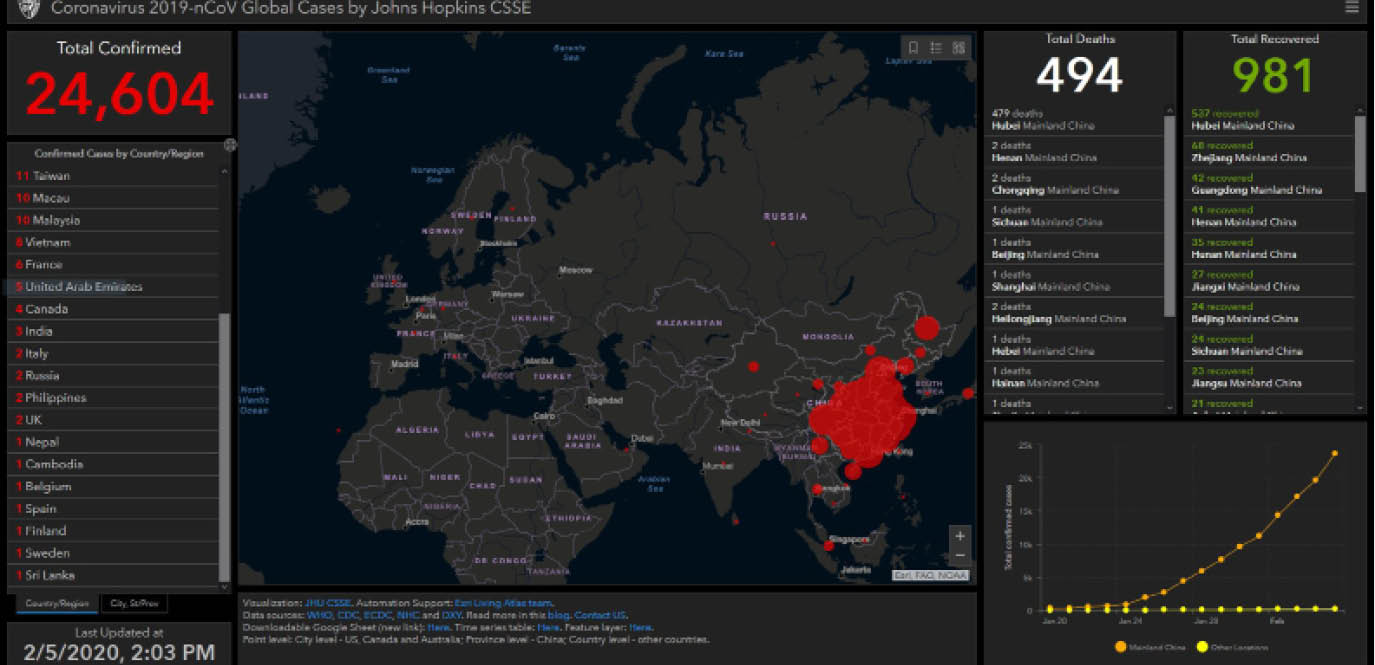From Lassa fever to coronavirus: how to legislate epidemics
The symptoms include fever, cough and shortness of breath. Some didn’t show any symptoms or very little. Others got severely ill and died. So far, 24,604 cases of infections with the 2019 novel coronavirus have been confirmed across the world, with 24,391 of them in Mainland China, according to an online dashing mapping in real-time […]

Lassa fever to coronavirus
The symptoms include fever, cough and shortness of breath. Some didn’t show any symptoms or very little. Others got severely ill and died.
So far, 24,604 cases of infections with the 2019 novel coronavirus have been confirmed across the world, with 24,391 of them in Mainland China, according to an online dashing mapping in real-time the global spread of the outbreak.
By evening of this past Wednesday, 494 had died—479 of them in Mainland China alone.
A total of 981 people on treatment have recovered—537 of them in Mainland China, where the country has sited a hospital considered a world record holder in the speed of setup.
Nigeria has issued travel advisories warning against nonessential travel to China and stepped up screening protocols at entry ports.
The number of countries that have reported an infection of nCoV2019 now stands at 24, and Nigeria is jittery about the possibility of getting onto that list—and what to do about it.
Nigeria is gradually clawing upward on the Joint External Evaluation review of the World Health Organisation, a tool that accesses a country’s readiness for an epidemic. But it still ranks 39th on preventepidemics.org.
On the platform, immunization is listed as one of the country’s strengths, but its top gaps are threefold: biosafety and biosecurity ; preparedness; national legislation, policy and financing .
Nigeria faces a double whammy: even before nCov2019 came knocking on the doors of seafood stores in the Chinese city of Wuhan, Lassa fever was stealing its way across hospitals and homes in Nigeria. In the fifth week of the year, 104 infections were confirmed—a total of 365 since the start of January. In the period, 47 people have been killed across 15 states .
While regulators deploy medication, kits and awareness about containing an outbreak, a bit of the response is looking to how the country’s parliament can legislate Nigeria through an epidemic .
Deaths in an epidemic are certain, but what’s most important is “How do we mitigate it?” says Senator Ibrahim Oloriegbe, chair of the Senate committee on health. He was one of two senators panelled at a breakfast meeting to consider “legislating epidemics” by Nigeria Health Watch .
China is a major power, but despite its focus on economic growth, it is facing challenges, he explains. Epidemics can wipe out decades of growth .
One pillar of legislating the country out of an epidemic is “preparing in terms of funding,” says Oloriegbe. Nigeria’s current mode of carving out chunks of regular budget for “epidemic response” isn’t sustainable, he says.
“We must be able to not fund epidemics from a budget but creating a special fund.”
That’s like TETFUND for education. He proposes having businesses and “non-state actors” be a part of the fund basket, considering how much the private sector stands to lose in the event of an epidemic.
In the relations with China, that means the airline tickets bought but never flown, Nigerian merchants who have placed orders on Chinese goods that may not be delivered.
Oxford Economics projects the current outbreak could cost the US economy $35 billion this year alone—“assuming immediate disruptions to tourism, supply chain restraints for the frail manufacturing sector, and heightened uncertainty restraining business and consumer outlays”.
Senator Utazi Ukachukwu, who chairs the Senate committee on primary health care and communicable proposes the National Health Act, the basket that contains the Basic Health Care Provision Fund—a percentage of which is allocated to the Nigeria Centre for Disease Control—needs a review.
He describes the provision as “discretionary” and “out of the goodness of the heart of anyone heading the ministry of health”
He says NCDC needs more presence on the borders to tighten surveillance and response before and during epidemics but is unable to do that with what it gets.
